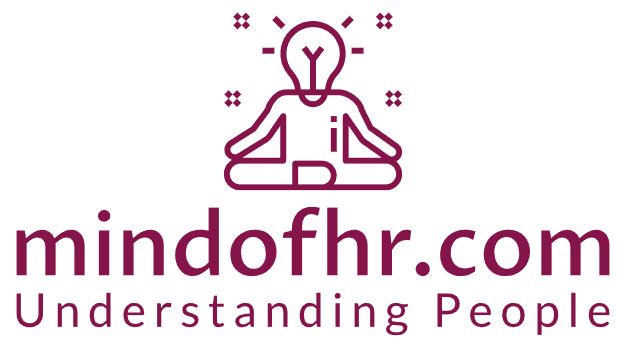Discovering that you’ve been a victim of mis-selling by an insurance agent can be a devastating blow. However, there’s a glimmer of hope for policyholders looking to surrender their policies, thanks to the bold moves of the Insurance Regulatory and Development Authority of India (IRDAI). In a strategic maneuver to safeguard policyholders’ interests, IRDAI is on the brink of revolutionizing early policy closures with proposed rules that could shake the foundations of the insurance landscape.
The proposed rules signify a seismic shift, compelling insurance companies to make substantial increases in payouts to customers opting for early policy discontinuation.
Yet, the stakes are high, as insurers now face a daunting choice between sacrificing sales or profit margins to tackle the issue of premature policy closures.
Should insurers choose higher payouts by trimming commissions, it could adversely impact sales. Conversely, retaining commissions or offering larger payouts may erode their profits. The market has already registered its response to this dilemma, with shares of listed private life insurers experiencing a decline.
HDFC Life witnessed a 1.9% dip, and ICICI Prudential Life dropped by 1.8% on the stock market following the announcement. While the proposed rules lack a specific threshold value, an illustration suggests a potential increase of 1.8 times the surrender value in the second year and 0.8 times higher in the fifth year.
The underlying objectives of these changes are crystal clear: to combat mis-selling by urging insurers to distribute commissions more equitably across policy years and to incentivize endeavors to boost policy persistency.
As part of IRDAI’s proposed insurance product regulations, the draft has been circulated to insurers. A notable provision in the draft declares, “There will be a premium threshold defined for each product, where there shall not be any surrender charges imposed on the balance of the premiums beyond such threshold limits, irrespective of the timing of the surrender.”
The proposed threshold for surrender charges is significantly lower than what many companies currently deduct from insurance policies. Surrender charges are typically imposed to cover the upfront costs of selling a policy, with up to 75% of the first-year premium allocated to various costs, primarily commissions paid to corporate agents or individual agents.
This isn’t the first time IRDAI has tackled the issue of surrender charges. Over a decade ago, the regulator capped the maximum amount insurers could deduct from unit-linked insurance plans (ULIPs), triggering a shift in focus towards traditional insurance products following a regulatory clash with the Securities and Exchange Board of India (SEBI).
As these proposed rules take center stage, the insurance landscape braces for a transformative shake-up.

Role of HR in such a scenario:
The winds of change are blowing in the insurance industry, driven by the proposed amendments from the Insurance Regulatory and Development Authority of India (IRDAI). These changes, particularly focusing on surrender charges and commission structures, are set to reshape the landscape, and the Human Resources (HR) departments within insurance companies are at the forefront of this transformation.
Product Knowledge Enhancement:
In response to the regulatory shift, HR is gearing up to enhance training programs tailored specifically to insurance agents and staff. The goal is to equip employees with in-depth knowledge of the amended regulations, ensuring they understand the intricacies of new product features and sales techniques aligned with the proposed changes. This proactive approach is crucial in empowering the workforce to navigate the evolving insurance landscape effectively.
Incentive Structure Overhaul:
As the industry adapts to revised commission structures, HR professionals find themselves in a pivotal role. They are tasked with reevaluating and restructuring compensation and incentive plans for insurance agents. Striking a delicate balance between sustaining sales momentum and adhering to the new regulations becomes a priority, and HR plays a crucial role in guiding this transition. Variable pay structures may see adjustments to align with the dynamic regulatory environment.
Effective Employee Communication:
Clear communication is paramount during times of change. HR is instrumental in conveying the nuances of the regulatory amendments to employees, providing clarity on how the changes impact their roles within the insurance sector. Employee engagement becomes a focal point for HR, ensuring that the workforce is well-informed and aligned with the evolving dynamics. Managing the transition smoothly contributes to maintaining a positive work environment.
These strategic moves by HR are part of a broader effort to ensure that the workforce is not only compliant with the new regulations but also equipped, motivated, and aligned with the evolving framework. It’s not just about adapting to change; it’s about proactively shaping the future of insurance sales.
The insurance industry, known for its resilience, is no stranger to regulatory shifts. Over a decade ago, the sector witnessed a similar evolution when Irdai capped surrender charges on unit-linked insurance plans. This time around, the focus is on surrender charges and commission structures, with HR emerging as a key player in steering insurance companies through these changes.
Conclusion:
As the insurance industry braces for a new era, HR departments are stepping into a strategic role, ensuring that employees are prepared for the challenges and opportunities that lie ahead. By enhancing product knowledge, overhauling incentive structures, and fostering effective communication, HR is not just reacting to change but actively shaping the future of insurance sales. In this dynamic landscape, the collaboration between HR and the insurance workforce becomes the driving force behind a successful transition and a thriving industry.









